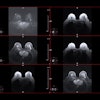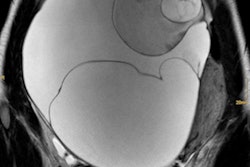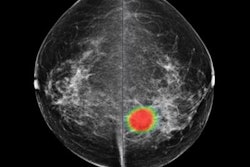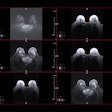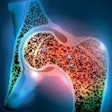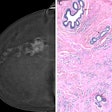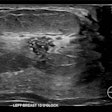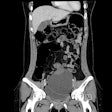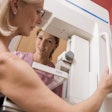Dear Women's Imaging Insider,
Ovarian cancer remains a huge challenge. Only a minor improvement in overall survival has occurred in recent years, largely because ovarian cancer is diagnosed late. But the good news is that artificial intelligence, radiomics, and radiogenomics are showing considerable promise in this area. Read more in our news report.
Breast cancer can be diagnosed, staged, and tracked using a variety of imaging modalities, including FDG-PET/CT, which can be a particularly powerful tool due to its ability to image both anatomy and metabolic function.
But how best to use FDG-PET/CT for breast cancer must be clearly defined, according to a presentation delivered on 28 May at a webinar hosted by the European Society for Hybrid, Molecular, and Translational Imaging (ESHIMT) and featuring Dr. José Vercher-Conejero of Bellvitge University Hospital in Barcelona, Spain. Find out what he had to say about using the modality for breast cancer applications, particularly staging and treatment assessment, in our recent report.
Also worth highlighting are findings from a large U.K. study published on 27 May in BMJ that explored the long-term risks of ductal carcinoma in situ (DCIS). The results suggest that women who are diagnosed with DCIS during screening are at higher risk of not only developing breast cancer but also dying from it.
The COVID-19 pandemic has had a dramatic effect on breast cancer screening programs across Europe, as facilities have suspended screening services in an effort to curb spread of the illness. Now, some clinics are moving toward resuming screening: As of 13 May, Falun Central Hospital in Sweden and clinics in Hungary planned to reopen their doors.
Also, take a look at our coverage of research conducted by a group led by Stephen Duffy, PhD, of Wolfson Institute of Preventive Medicine in London and Dr. László Tabár of Uppsala University in Sweden that offers more evidence that mammography screening reduces the risk of dying of breast cancer -- by more than 40% within 10 years of diagnosis.
Finally, read up on the results from a European Radiology study that found ultrasound-guided percutaneous microwave ablation to be an effective treatment for benign breast lesions.
These articles make up just part of our Women's Imaging Community reporting. Be sure to check in regularly for up-to-date women's imaging news and research developments.




